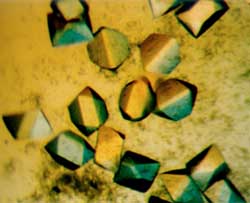Approaches to Kinesin-1 Phosphorylation
互联网
840
Most mammalian proteins undergo reversible protein modification after or during synthesis. These modifications are associated, for the most part, with changes in protein functionality. Protein phosphorylation is the most common posttranslational modification in mammalian cells, regulating critical cellular processes that include cell division, differentiation, growth, and cell-cell signaling as well as fast axonal transport (FAT). Evidence has accumulated that kinesin-1 phosphorylation plays a key regulatory role in kinesin-based FAT. Multiple kinase and phosphatase activities with the ability to regulate kinesin-1 function and FAT have been identified. Moreover, additional pathways are likely to exist for regulating FAT through reversible phosphorylation/dephosphorylation of specific motor protein subunits. The present chapter describes specific biochemical assays to determine, or to perturb experimentally, the phosphorylation status of kinesin-1. These protocols provide assays for characterization of novel effectors (i.e., trophic factors, neurotransmitters, pharmacological inhibitors, pathogenic protein expression, etc.) that affect the phosphorylation status of kinesin-1. Finally, in vitro phosphorylation assays suitable for analyzing the direct effects of specific kinases on kinesin-1 are provided.










